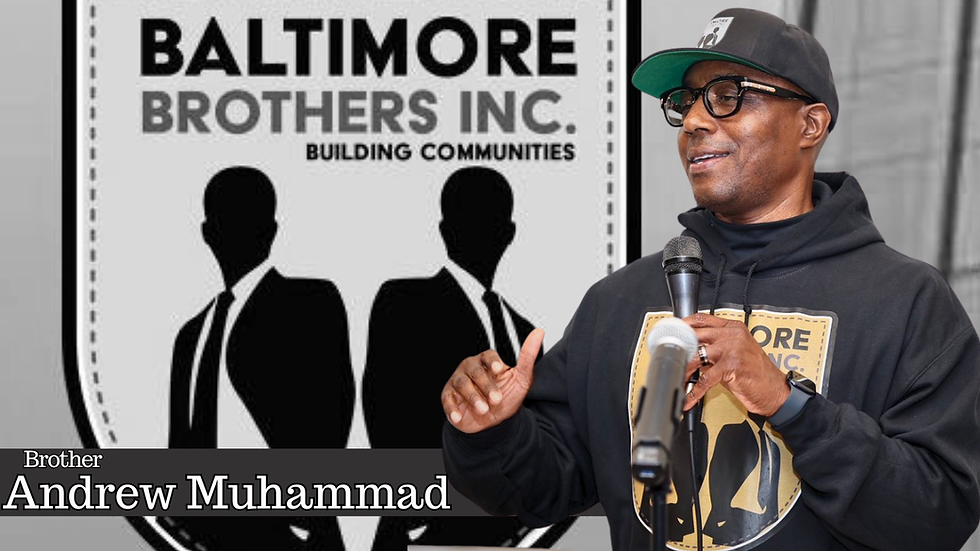“Displaced by Design: The Silent Eviction of the Poor Through Housing Policy”
- Brother Levon X

- Apr 24
- 3 min read

Article: Contributing reporting / writer Brother James Shabazz & BLXCR staff
There’s a quiet storm brewing in Washington, D.C.—and across the nation—that’s threatening to wash away the housing security of thousands of low-income families and individuals. At the heart of the issue are deep cuts to federal housing budgets, redevelopment plans masked as progress, and a looming reality: the U.S. government has been steadily moving out of the public housing business, leaving our most vulnerable to fend for themselves.
As it stands, some families may be housed, but homeless singles—are being left behind. Public housing residents in D.C. need to pay attention: Potomac Gardens and the ten remaining public housing communities in the city are on the clock. If these communities don’t organize now, they face displacement within five years.
This isn’t just a rumor. In 2000, the federal government made clear its long-term intention to privatize public housing, shifting ownership and management to private developers. That plan has been slowly but surely unfolding—one housing complex at a time.
Barry Farm in Ward 8 is a tragic example. Promises were made to residents, but many were relocated, never to return.Redevelopment replaced community. Displacement replaced stability. And now, Potomac Gardens may be next.
Yet, there is a solution. Current HUD regulations allow public housing residents to use the cash value of their Housing Choice Vouchers (HCV) to purchase single-family homes or to form cooperatives and collectively own and manage their housing. But this solution requires vision, unity, and immediate action.
This was the path championed by the late Kimi Gray at Kenilworth-Parkside—just steps away from the former location of Muhammad Mosque No. 4. Under her leadership, tenants took ownership and began managing their property, one of the first successful examples of resident-led public housing transformation in America.
The mandate to “Do for Self,” as taught by the Most Honorable Elijah Muhammad, becomes ever more relevant. Ownership and control of our communities must be our end goal—not just tenancy under someone else’s rule. If we do not act, history will repeat itself, and the same cycles of removal and replacement will continue.
According to recent reports, proposed federal budget cuts threaten the livelihoods of tens of thousands of families. The Emergency Housing Voucher program, launched in 2021, is at risk of losing funding by the end of 2026. That would affect approximately 60,000 Americans—most of them low-income and disproportionately people of color. Simultaneously, over 40,000 housing voucher holders in D.C. alone are navigating a system under strain, with limited transparency and shrinking options.
These housing challenges are not limited to D.C. Every city in America with public housing is facing this same crisis. From Los Angeles to Atlanta, the poor—Black, white, Latino, and beyond—are being squeezed out of the housing market, not because there’s no solution, but because the system was never designed for them to truly own anything.
The poor are not just under attack by poverty itself, but by policies that disguise displacement as revitalization. They’re promised better futures while being pushed further into the margins. Non-profit organizations, political players, and developers benefit, while the people pay the price.
The message is clear: No one is coming to save us. We must organize. We must educate. And we must build. As our ancestors did with little, we too must learn to do for self—with one another, not waiting for the government to act in our interest.
Because if we don’t take ownership of our housing—and our communities—then we’ll continue to be renters in a system that was never meant to include us.
Citations & References:
1. AP News – “Thousands could lose housing assistance under Trump budget”
2. National Low Income Housing Coalition (NLIHC) – “Congress Passes Stopgap Funding Bill”
3. Shelterforce – “What’s Going on with the HUD Budget?”
4. Washington Post – “Barry Farm redevelopment pushed longtime residents out”
5. HUD Exchange – Housing Choice Voucher Homeownership Program
6. People’s Law Library of Maryland – Using Housing Choice Voucher to Buy a Home
7. Washington Post – “Public Housing Advocate Kimi Gray Dies”





Comments